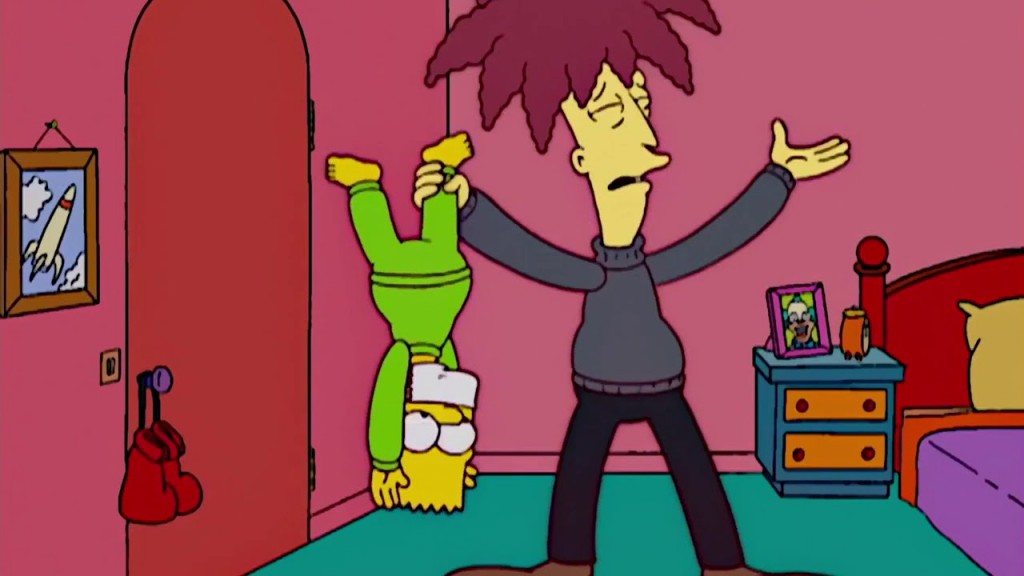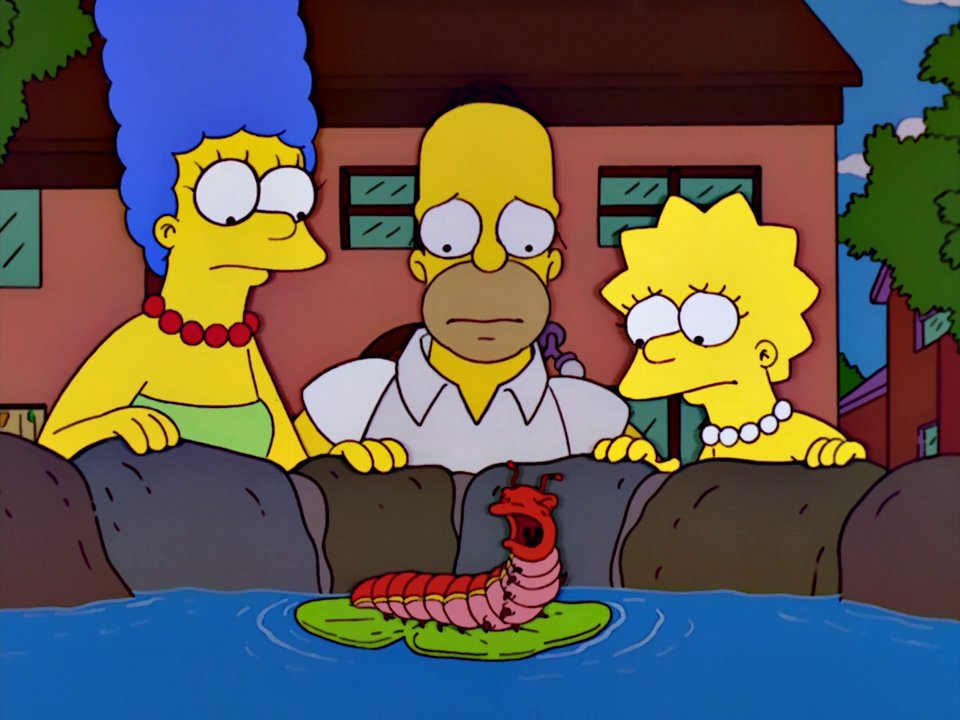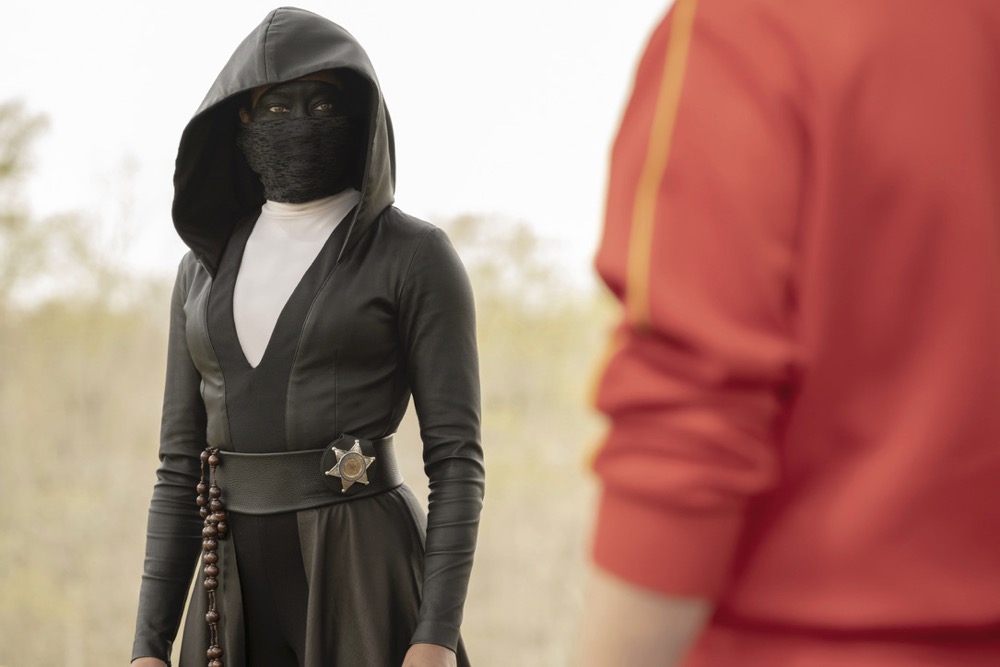-
Recent Posts
- Better Call Saul: There Are No Happy Endings between a “Rock and Hard Place”
- Black Widow Keeps It in the Family for Natasha’s Last Ride
- Loki Finds New Purpose in the Man behind the Mischief
- In its Debut, Star Wars: The Bad Batch Decides Whether to Obey or Rebel
- Nomadland: A Film Out of Time, For Our Times
Archives
Recent Comments
- Ed Clarke on Contact
- Matt on Why “The Frying Game” Is a Dark Horse Contender for The Simpsons’s Worst Episode Ever
- Lilly Dow on Contact
- Stacey on Veep’s Series Finale and the Hollowness of Getting What You Want
- Evan Jaocbs on Contact
Meta
Category Archives: Television
Better Call Saul: When Something Means More Than Just Business in “Dedicado a Max”
We’re used to Jimmy McGill pushing limits and crossing lines. Time after time, Better Call Saul serves up scenarios where its title character faces two options: do things the safe and expected way, or do them the Saul Goodman way. The latter might gain Jimmy a little more, but it’s also riskier and sometimes even dangerous.
For once, though, it’s Kim taking that type of risk. She’s obviously no stranger to participating in Jimmy’s schemes and even concocting some of her own. But she’s also always had a limit, a certain line she refused to cross, even if doing so would get her what she wanted. It’s in Jimmy’s nature to cheat and finagle and squeeze the last bit of juice out of everything. It’s in Kim’s to dabble in those conman ways, even excel at them, but to ultimately come back to the light.
Better Call Saul: The Good Guys and Bad Guys Fight the Same Fight in “Namaste”

If there’s a persistent thematic undercurrent that touches each part of Better Call Saul (and maybe even Breaking Bad), it’s that people from very different walks of life are not all that different. Respected and superficially decent men like Chuck McGill and Walter White can be cruel and self-serving. Those on the margins of society like Nacho Varga and Jesse Pinkman can be intelligent and empathetic. And crime bosses and young attorneys can be equally determined, equally dogged, and equally committed to doing what they must to win the long game.
Better Call Saul: Misdirected Anger, Urban Antpiles, and Broken Glass in “The Guy for This”

I could write an entire review just trying to decode all the little images that “The Guy for This” parcels out for the viewer. One of the things that sets Better Call Saul (and its predecessor) apart is a penchant for that type of symbolism. The visual conveys as much of what the audience is supposed to take away as the dialogue. So when an episode begins with ants slowly but surely descending on Jimmy’s ice cream cone, and ends with the aftermath of that miniature invasion, it’s clear that Peter Gould and company are trying to tell us something.
Better Call Saul and the Lines We Cross for Those We Love in “50% Off”
People will go to incredible lengths if something really matters. When someone or something important hangs in the balance, it stirs the blood, pushes us to take chances we wouldn’t otherwise take, and cross lines we wouldn’t normally transgress.
That’s certainly true for Nacho here. If he’s had one consistent character trait over the course of Better Call, it’s that he’s apt to keep things stable and not rock the boat unless he has to. He’s more thoughtful and more calculating than the hot-blooded Salamancas he answers to. But his other consistent throughline is how much he loves his father. That means Nacho will take chances and put himself at risk in ways that he wouldn’t normally do, if it allows him to protect the man who raised him.
Better Call Saul: The Beginning and End of Saul Goodman in “Magic Man”
Five seasons in, and I still don’t know what to make of the flash-forwards to Cinnabon Gene. I always think of The Wire’s approach to these opening vignettes, with the idea that they’re meant to be microcosms of the themes of the season. But that doesn’t seem to fit here, since Gene’s choices largely track with Jimmy’s in the show to date. The cold open shows Gene panicking, worrying that he’s in too deep and looking for a way out, only to decide to take matters into his own hands. That’s been Jimmy’s M.O. for basically the whole series, most recently and notably overcoming his disciplinary suspension despite some serious headwinds.
Watchmen Ticks All its Pieces into Place in “See How They Fly”
When I watched the first batch of episodes from Watchmen, I thought it tossed plenty of interesting balls into the air, but I questioned how and whether it would be able to catch all of them. As I discussed on The Serial Fanaticist podcast, showrunner Damon Lindelof (of Lost fame) is not necessarily known for delivering satisfying endings. His new series asked all sorts of intriguing questions about powerful institutions and those marginalized by them, and it threw in one eyebrow-raising plot point after another. But to answer all of the former and resolve all of the latter, seemed like too much for even the smartest [person] in the world to do in a satisfying way.
And yet, somehow, “See How They Fly” does it.
Posted in Other Prestige Dramas, Television
Tagged Damon Lindelof, Dr. Manhattan, Episode Reviews, HBO, Watchmen, Watchmen S01E09
Leave a comment
The Simpsons Plays the Old Favorites with Sideshow Bob and a Former Foe in “The Great Louse Detective”

The Simpsons has certain traditions that are never going away. As long as the series stays on the air (and in the good graces of the Disney corporation), there will always be Treehouse of Horror episodes. There will always be “the Simpsons are going to ____!” episodes. And, of course, there will always be Sideshow Bob episodes. The show may have changed a great deal over the past thirty years, but some things are too ingrained in The Simpsons’s DNA for the show to move on.
Thankfully, one of those indelible elements is Kelsey Grammer, whose mellifluous baritone has graced episodes both great and god-awful over his three-decade tour of duty. Fortunately, “The Great Louse Detective” leans more toward the former than the latter, if only just barely. As I discussed on The Simpsons Show Podcast, this episode manages to inch its way toward quality, due in no small part to the presence of Springfield’s favorite attempted murderer. (But we like you too, Fat Tony!)
Posted in Television, The Simpsons
Tagged Al Jean, Episode Reviews, Homer Simpson, Sideshow Bob, The Simpsons Season 14
Leave a comment
Why “The Frying Game” Is a Dark Horse Contender for The Simpsons’s Worst Episode Ever

Spare me your jockey elves. Forget your spring break alligators. Cast aside your amorous pandas and bar rags and even your Gagas. My poor lost souls, I beseech you to look upon thy screamapillar and weep — weep for us all.
Because “The Frying Game” may very well be The Simpsons’s worst episode ever.
As I discussed on The Simpsons Show podcast, I don’t make that pronouncement lightly. It’s hard to call “The Frying Game” overrated exactly — forgotten is probably more accurate — but it’s rarely brought up in discussions of the series’s nadir. And yet it deserves to be ground into the dirt like the fetid excuse for televised refuse that it is. What the episode lacks in the casual cruelty of other contemporary Simpsons outings, or the aimless racism of the show’s more regrettable international jaunts, it makes up for in being emblematic of everything wrong with the series at this point in its run. It is a nonsensical, irritating, embarrassing blight upon the face of what was once the greatest show on television.
HBO’s Watchmen Watches Over Trump’s America

More than 30 years after the globe-shaping events of the original Watchmen comic, the ripple effects can still be felt. Adrian “Ozymandias” Veidt is in seclusion somewhere far away and presumed dead. A group of Rorschach-imitating, conspiracy-touting white supremicists threaten the peace and the police at every turn. And the law enforcement officers of Tulsa, Oklahoma have donned capes, cowls, and masks in response, with some even assuming the secret identities that can come with them.
Posted in Other Prestige Dramas, Television
Tagged Damon Lindelof, HBO, Season Reviews, Watchmen
Leave a comment





